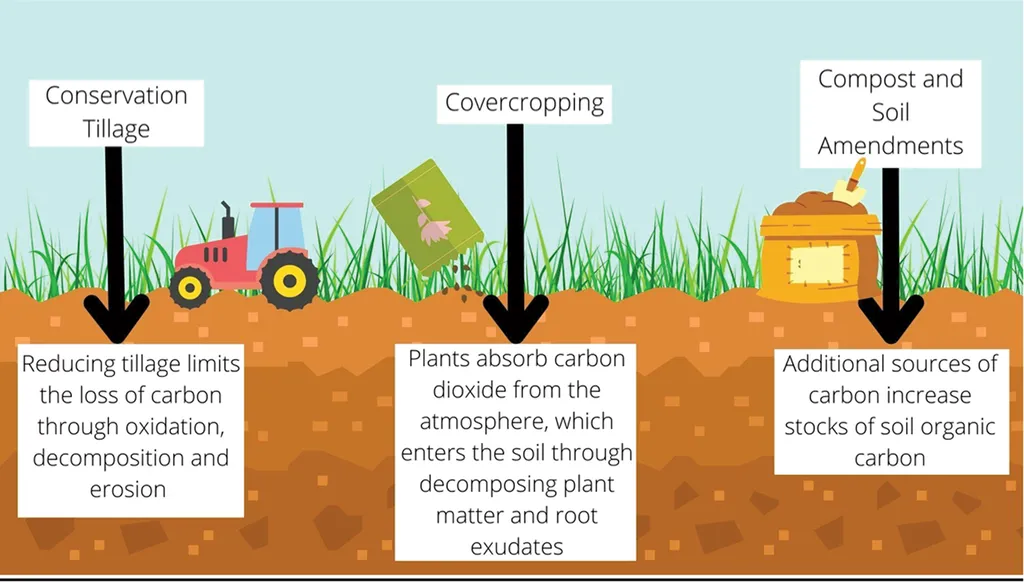In the heart of North Macedonia, a groundbreaking study is challenging the status quo of agricultural practices, offering a glimpse into a future where farming not only feeds the world but also heals the planet. Led by Biljana Balabanova, a study published in the *Journal of Agriculture and Plant Sciences* (translated from Macedonian as “Списание за земјоделство и биолошки науки”) is making waves in the agritech world, with implications that could reverberate through the energy sector.
The research, conducted over the 2024–2025 growing season, pits carbon farming against conventional agricultural systems in corn and sunflower cultivation. The results are clear: carbon farming is a game-changer. “We saw a consistent and significant enhancement of total organic carbon (TOC) and total nitrogen (TN) in soils under carbon farming compared to conventional agriculture,” Balabanova explains. This isn’t just good news for the soil; it’s a potential boon for the energy sector, where sustainable practices are increasingly valued.
The study collected soil samples at three critical stages—vegetation onset, midseason, and harvest—to quantify TOC and TN under each management regime. In corn plots, carbon farming induced a progressive accumulation of both TOC and TN, driven by increased organic matter inputs and stimulated microbial activity. Sunflower plots, while exhibiting a delayed response, showed a notable increase in soil carbon and nitrogen, reflecting the crop’s unique nutrient uptake and biomass turnover patterns.
Conventional management, on the other hand, displayed stable or declining TOC and TN trends, underscoring the adverse impacts of synthetic inputs on soil fertility. “These findings highlight carbon farming’s effectiveness in enhancing soil health by improving nutrient retention and increasing organic matter,” Balabanova notes. This aligns with climate-smart and regenerative agriculture principles, offering a promising strategy for boosting soil carbon and nitrogen stocks in cereal and oilseed production systems.
The commercial implications for the energy sector are substantial. As the world shifts towards sustainability, the demand for crops cultivated through regenerative practices is on the rise. Energy companies investing in or partnering with farms that adopt carbon farming could see a significant return on investment, both in terms of crop yield and environmental impact.
Moreover, the study’s findings could shape future developments in the field, encouraging more farmers to adopt agroecological practices. “This research is a stepping stone towards sustainable soil management,” Balabanova says. “It’s about creating a balance between productivity and environmental stewardship.”
As the world grapples with climate change, the need for sustainable agricultural practices has never been more pressing. This study, published in the *Journal of Agriculture and Plant Sciences*, offers a beacon of hope, demonstrating that it’s possible to feed the world while also nurturing the planet. The energy sector would do well to take note, as the future of farming could very well lie in the soil beneath our feet.

